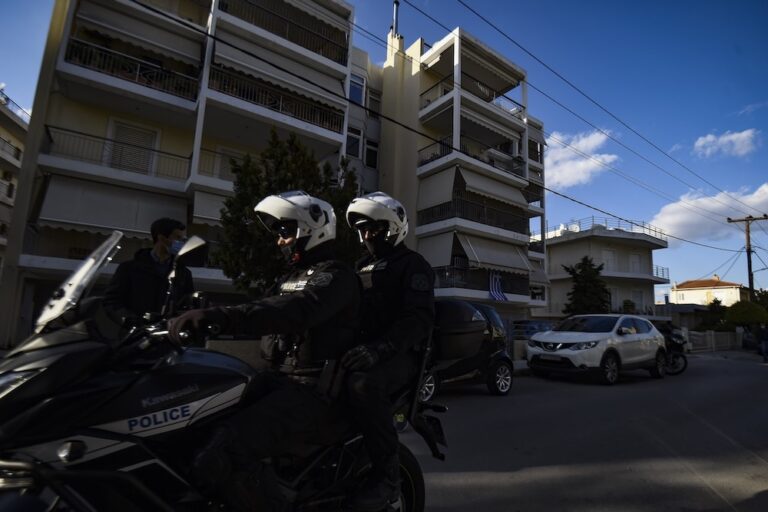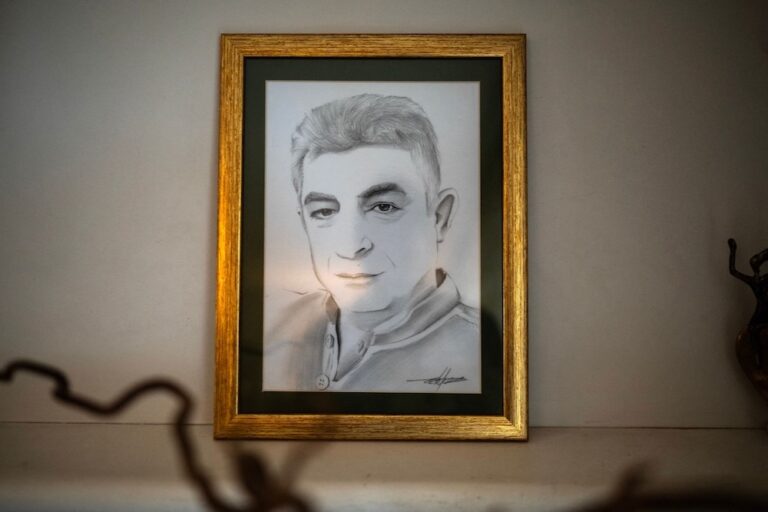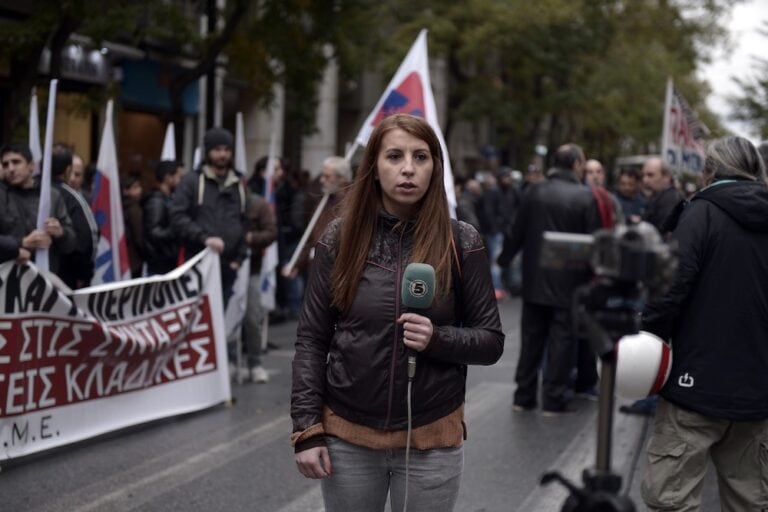(RSF/IFEX) – RSF has expressed its “outrage” after two journalists from the Mexican television station Televisa and their interpreter were arrested, handcuffed, insulted and beaten by members of the Greek coast guard on 2 August 2004. The incident took place as the journalists were preparing a report on Piraeus, the main port of Athens, where […]
(RSF/IFEX) – RSF has expressed its “outrage” after two journalists from the Mexican television station Televisa and their interpreter were arrested, handcuffed, insulted and beaten by members of the Greek coast guard on 2 August 2004. The incident took place as the journalists were preparing a report on Piraeus, the main port of Athens, where eight ships, including the Queen Mary II, are to serve as hotels during the Olympic Games.
“We welcome the fact that an investigation is under way and we call for it to be fast and thorough,” the organisation said, noting that the Greek authorities made contradictory statements about the incident, and that the exact circumstances need to be clarified as quickly as possible.
“Security measures are legitimate and necessary but in no way do they justify aggressive behaviour that is utterly reprehensible. We hope that security procedures will not unnecessarily obstruct journalists in their work as this would tarnish the image of the Olympic Games,” RSF added.
In a 4 August press release, the Merchant Marine Ministry claimed that reporter Eduardo Salazar, cameraman Russel Vaquiero and interpreter Fernando Kalligas “tried to flee by car,” forcing police to detain them. The port police denied the allegations of violence and humiliation.
The two journalists and their interpreter have denied trying to escape. Kalligas said they were at a location overlooking the port where there was no sign indicating that filming was prohibited. They were about to leave when a military jeep arrived. Three uniformed men got out and confiscated their identification papers and accreditation, along with their telephones and equipment. The officials then searched them in such an aggressive manner that one of them fell to the ground. The journalists were reportedly also insulted and threatened.
According to Kalligas, they were then handcuffed and take to the port police headquarters. Vaquiero was ordered to put his hands on a table. When he did not comply quickly enough, a policeman banged his head against the table.
Kalligas said that when an official from the 2004 Athens Games organising committee came to verify their accreditation, their handcuffs were removed, but they were put back on afterwards. The crew was then led to a gymnasium-like building while being kicked to make them walk faster. There, with their heads bent and legs spread wide apart, they were again insulted and threatened. When a policeman began to lower the trousers of one of the journalists, an officer came in and said, “None of that here.” The policemen’s behaviour changed completely when senior military officers arrived.
The journalists were only able to contact their television station when the Mexican ambassador arrived at the scene. They filed a complaint on 4 August. Initially, the Greek news media only reported the Mexican television crew’s arrest without mentioning their claims that they had been subjected to violence. When the international news agencies reported their allegations that they had been assaulted, threatened and insulted, the local media only used the statement issued by the Merchant Marine Ministry.
In a separate incident on 3 August, four Mexican journalists were detained near a military base in Tatoi, north of Athens. Previously, on 28 July, an Agence France Presse (AFP) photographer who was taking photos in the tourist district was detained for several hours. Another AFP journalist was forbidden from taking photographs of the site of the marathon, although he was in the street and not inside an Olympic structure.


